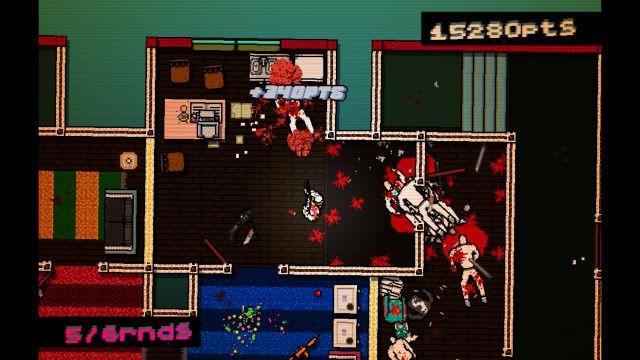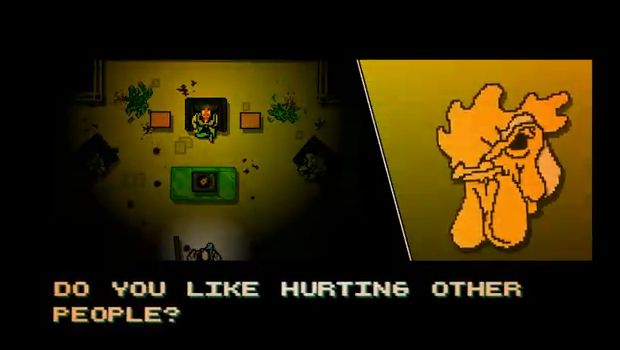This post has not been edited by the GamesBeat staff. Opinions by GamesBeat community writers do not necessarily reflect those of the staff.

According to the Merriam Webster Dictionary, to glorify something is to make it “glorious by bestowing honor, praise, and admiration.”
One of the charges that has always been levied at controversial video games is that many of them glorify violence. Now, there are certain games that I would be hard-pressed to make a compelling defense for, such as Postal; however, there have been certain games that have successfully sidestepped that criticism by giving the player the choice to commit or refrain from violence.
Think about Grand Theft Auto III. To progress through the game, you must kill mafia members and other undesirables, but the game never requires that you to progress through the story to play it. Think about it. You can play taxi driver or cruise around town blasting the radio or just walk about, observing the denizens of Liberty City as they go about their lives. It may be boring as hell, but the option to play the game without maiming a single person is there.
And then we have the middle ground: Hotline Miami. I’m not going to waste time reviewing the game as there are plenty of fantastic reviews out there. I do, however, want to focus on the violence in this game since it’s clearly been one of its selling points.
There is no choice in Miami Hotline. It’s killed or be killed, and killing is always gruesome. Heads are smashed against walls. Limbs are blown off by scattergun pellets. Men are sliced in half. Every single level is a colorful, pixilated splatter fest. And it’s all for the sake of good fun … for a while.
You’re rewarded for how you kill your foes with points — points that you accumulate in order to buy more weapons in order to kill more foes so you can get more weapons so you can … well, you get the idea.
But something rare happens about halfway through: Hotline Miami turns around and slaps the gamer in the face — deliberately. There are hints at the beginning that the "narrative" isn’t going to be typical, and boy oh boy does it fulfill that promise. What starts out as a somewhat twisted action game becomes a disorienting neon-lit nightmare.
There are dream sequences that mingle with the reality taking place around the nameless protagonist. You begin to wonder about what you’ve done, about the people you’ve killed. Details that you have taken for granted due to the retro look of Hotline Miami become disturbing and noticeable.
Why do all these guys wear the same white suits? And why are their faces blank? Were they really just nameless henchman? Maybe they’re all really bad dudes, or they could be the unfortunate punks who live down the street, victims of a psychopath stuck in a violent fantasy.

This is Hotline Miami’s greatest success: It toys with the line between fun, difficult tactical gameplay, and hellish nightmare sequences. I started wondering around chapter 10 why I was still playing this game non-stop. The violence was actually starting to make me a little queasy. After all, you can only split so many heads with a crowbar before you wonder why you’re doing it.
And Hotline Miami refuses to answer that question. The game doesn’t glorify violence. It takes the Spec Ops route: Violence is just a part of the world in this game, a fact. Violent, pixilated natural selection where both your tactical astuteness and reaction times are pitted against henchmen with the IQ of a sponge who still can quickly overpower you with their numbers.
The fun factor for Hotline Miami doesn’t stem from the fact that you’re eviscerating men with your various weapons, it’s because you’re surviving against innumerable odds. But for what purpose? Beats me.
There’s a simple revenge plot, but the game always hints that there’s more beyond the veil. Some greater narrative. There has to be some reason, right? You can’t just be a murderous monster? There’s got to be something beneath that mask, a human with a compelling story.
But no. The protagonist is simply a vessel caught in a limbo of violence. Not all the pieces of the puzzle are provided for the gamer, and their absence is hellish. In the end, maybe you’re nothing more than another Travis Bickle, someone who needs only a flimsy excuse to go on a killing spree.
I had fun with Hotline Miami. I’m not going to lie about that. But I also have to admit that I felt guilty for my entertainment; I felt dirty. What excuse did I need to go to random crack houses and nightclubs with the intent of murdering wave after wave of strangers? Not much, apparently. A revenge story, a half-hearted metajoke excuse of a narrative.
Any way you spin it, the violence within Hotline Miami and your attitude towards it end up saying more about you than they do about the game, and I stopped feeling fantastic about my bodycount long before it was over.
